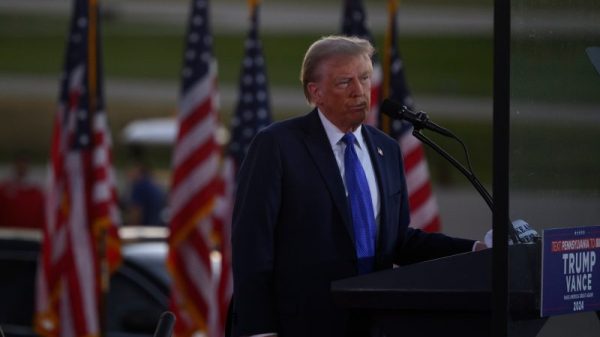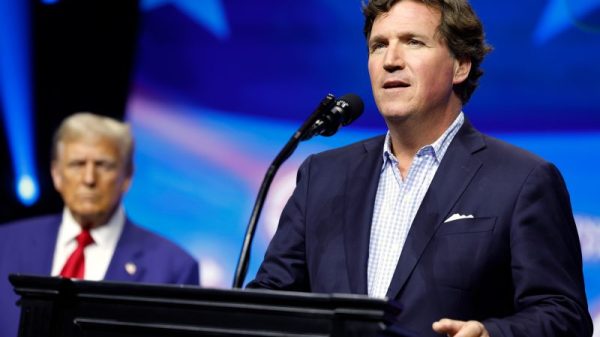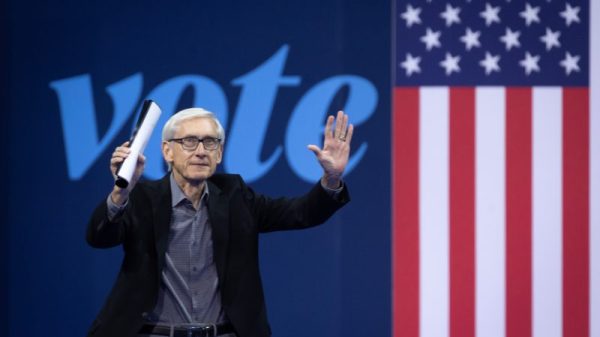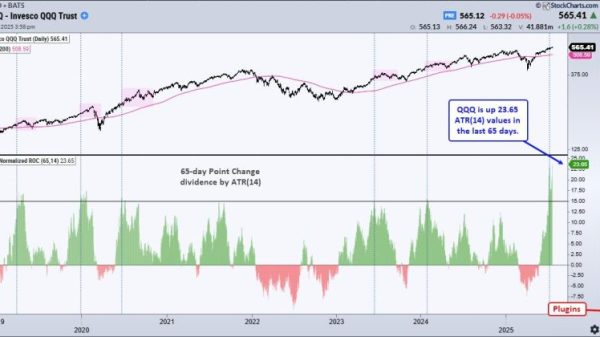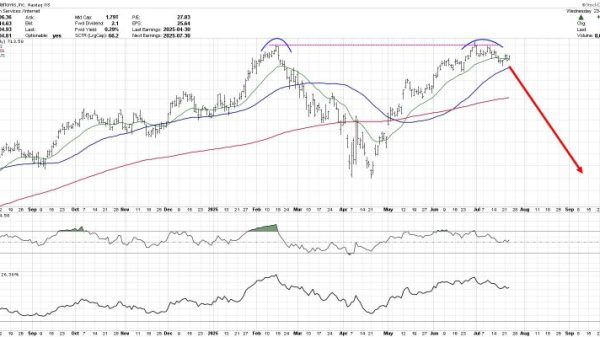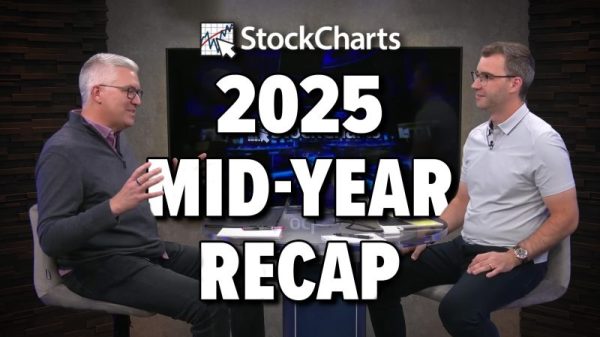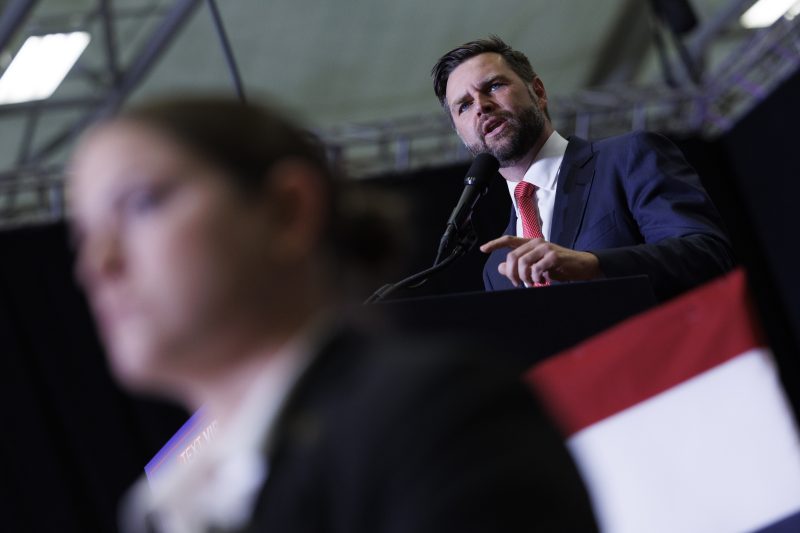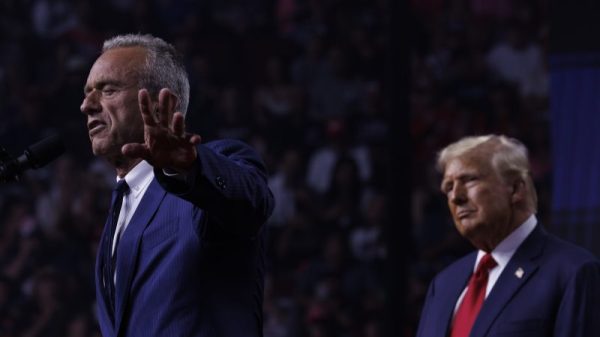Republicans backing Donald Trump are threatening Deloitte, a consulting firm that is one of the federal government’s largest business partners, with the loss of billions of dollars in contracts because an employee shared messages from 2020 in which GOP vice-presidential nominee JD Vance criticized the former president’s record.
On Sept. 27, Donald Trump Jr. exposed the employee’s name and photograph to millions of people on social media, writing, “Maybe it’s time for the GOP to end Deloitte’s taxpayer funded gravy train?” Others — including Vance’s chief spokesman and a Republican senator — circulated Trump Jr.’s comments, and the conservative website Breitbart published a story naming the man and highlighting his job.
Deloitte receives about $3 billion annually from federal agencies including the Department of Health and Human Services and Department of Defense.
Ethics experts said the episode is a potentially ominous preview of how a second Trump administration might use the enormous power the federal government wields over private industry to punish political acts by individual workers. Although federal contracting laws prohibit cutting off a business because of its workers’ private political views, such threats could have a chilling effect, they said.
“I’ve never seen anything like this,” said Kedric Payne, senior director of ethics at the nonpartisan Campaign Legal Center and former deputy chief counsel in the Office of Congressional Ethics, adding that the goal was probably to pressure Deloitte into firing the worker. “You can’t imagine that if one employee out of thousands made a statement that offended an official, that then the government contracts would be in jeopardy.”
On Sept. 27, The Washington Post published a report about direct messages Vance sent during the final year of Trump’s presidency to an acquaintance over the social media platform then called Twitter. Among other remarks, Vance said in the messages that Trump had “thoroughly failed to deliver” on his economic agenda in the White House, and predicted he would probably lose the election to Joe Biden.
The Post agreed before publication that it would not name the messages’ recipient, Kevin Gallagher, because he was concerned about possible retaliation. However, Gallagher said The Post could identify him later if he experienced reprisals from Trump, Vance or their allies. The Post is naming Gallagher in keeping with that agreement. Gallagher declined to comment for this report.
The episode is the latest bout of public threats from Trump’s MAGA movement. The former president has threatened to use the Justice Department to jail his opponents, among other things, if he wins a second term. Many Trump supporters on social media have urged that Gallagher be fired.
Deloitte declined to address questions about how it has handled the situation and whether Gallagher has been subject to any internal discipline.
“This individual shared private personal messages on his own volition without the knowledge of Deloitte, which is a non-partisan firm,” the company said in a statement. “Deloitte is deeply committed to supporting our government and commercial clients and we have a long track record of doing so across parties and administrations.”
Deloitte has a political action committee that in recent elections has distributed its spending across candidates in both parties. So far in the 2024 cycle it has given approximately $1.3 million to Republicans and $1.2 million to Democrats, the company said.
Vance spokesman William Martin, who recirculated on his own X account Trump Jr.’s post targeting Deloitte, said in a statement that Vance has not called for the company to lose its federal contracts and “has no opinion on the issue.” He also said that neither Vance nor Trump Jr. has explicitly called for Gallagher to be fired.
“The moment Kevin Gallagher chose to leak his private communications to The Washington Post, he went from a private citizen to a willing participant in the political arena,” Martin said. “When he made that decision, he dragged Deloitte Consulting into the political arena with him.”
Trump Jr., through a spokesman, responded to questions for this report with a written statement calling a Post reporter a “scumbag” and asserting that there was nothing inappropriate about the social media posts targeting Deloitte’s contracts.
“Kevin Gallagher had a right to leak the communications, Washington Post had a right to print them and as a private citizen I have a right to speak my mind about where my tax dollars go,” Trump Jr. said in the statement.
The episode is the latest example of the ways in which Vance’s prolific digital correspondence in the years before he became a politician has come back to haunt him.
Vance initiated his conversation with Gallagher through a direct message on Twitter in October 2019, praising an essay Gallagher had written the previous year about the interplay between Catholicism and politics, according to the correspondence Gallagher previously shared with The Post. Vance, who had become a public figure and commentator after the publication of his best-selling memoir, was working at the time as a venture capitalist based in Cincinnati and had recently joined the Catholic Church. He wrote that Gallagher’s piece “was really helpful to me as I thought about my own conversion.”
Over the following 11 months, the pair corresponded intermittently, mostly about politics and current events. In one early exchange, Vance asked Gallagher what he did for a living; Gallagher replied that he was a consultant who worked with investment managers. Otherwise Gallagher did not discuss his professional life in the messages, and at no point in the exchanges that were shared with The Post did he identify Deloitte as his employer or discuss his clients.
Vance offered several opinions, notably about Trump, that contradicted the public stances he would adopt as a politician. In February 2020, Vance wrote that “Trump has just so thoroughly failed to deliver on his economic populism (excepting a disjointed China policy).” Trump’s wealthy donors, he added, would probably remain loyal to him because he had served their interests in the White House.
Vance has acknowledged criticizing Trump in 2016 but said he changed his mind after seeing Trump’s performance in office. But the messages show Vance still disparaging Trump’s record near the end of his first term.
In June 2020, a few months before ballots were cast in an election that Vance later claimed was stolen by Democrats, he predicted Trump would probably lose to Biden. Vance also suggested in the messages that he had been offered and had turned down a position in the Trump administration; criticized Republicans for underestimating the harm caused by the coronavirus; and expressed openness to Medicare-for-all, the government-run universal health insurance proposal popular among progressive Democrats.
Vance’s campaign has said his statement that Trump had “thoroughly failed” was intended as a critique of “establishment Republicans who thwarted much of Trump’s populist economic agenda.” The campaign did not respond to questions about his prediction that Trump would lose or his claim to have been offered a job. A Vance spokesman said that the senator’s view on the coronavirus changed after 2020 and that Vance now thinks Medicare-for-all “would make health care worse for Americans.”
Despite their shared Catholic faith and intellectual interests, Vance often disagreed on political questions with Gallagher, who in his own messages criticized Trump and expressed support for some causes of the left. Vance nevertheless messaged Gallagher that he saw him as “an ally” because of their mutual interest in improving conditions for workers and curbing the influence of rich corporations.
“You’re playing a strategic game,” Vance wrote in February 2020, “the same as me.”
A Post reporter made contact with Gallagher in late August this year while reporting on Vance’s connections among conservative Catholic political theorists. Gallagher brought up the correspondence with Vance and later agreed to share it on the condition he not be identified as its source in The Post’s report.
Before publication, The Post sought comment from the Vance campaign, sharing the contents of the messages it planned to publish but withholding the name of the recipient and other identifying details. Martin, the campaign spokesman, wrote in an email to a reporter that Vance had identified Gallagher as the source of the correspondence. (After the article was published, Martin said his email had been intended as a warning that “Kevin was going to be publicly outed.”)
The Post did not confirm Gallagher’s identity to Martin but did inform Gallagher that Vance had identified him and that his name could become public. Gallagher said he understood that risk.
After the article was published, Breitbart posted an article naming Gallagher and stating that his “actions could have potentially very serious consequences for Deloitte in the future should Trump and Vance win the election — or even if the Democrats win.” It also quoted Vance’s campaign and referred to emails the campaign had sent to The Post.
Soon afterward Trump Jr. shared the Breitbart article on X, writing, “Why is an executive @DeloitteUS conspiring with the Washington Post to help Kamala Harris?”
In a follow-up post, Trump Jr. shared screenshots of a website displaying the total value of Deloitte’s current U.S. government contracts and of Gallagher’s bio page, including his photo, from the firm’s website. He tagged House Speaker Mike Johnson (R-La.).
Trump Jr.’s comments were viewed by 2 million and reposted 13,000 times. Some on the platform said they would stop doing business with Deloitte and called on the company to fire Gallagher.
“Kevin Gallagher FAFO!” senior Trump adviser Jason Miller wrote five minutes later, using an acronym for “f— around and find out.”
Two days later Trump Jr. again posted the Breitbart article, writing, “We’re not forgetting this.” Sen. Eric Schmitt (R-Mo.) shared that post, writing, “This is outrageous,” and saying Deloitte “should immediately and publicly respond to this scandal.”
Spokespeople for Johnson and Schmitt did not respond to requests for comment.
During the vice-presidential debate Tuesday night, Vance was asked about The Post’s report. He said the messages didn’t capture his more nuanced view of Trump at the time but made no reference to Gallagher, Deloitte or the pressure being applied to them.
Deloitte probably would have a strong legal case against efforts to revoke its federal contracts because of Gallagher’s action, said Jessica Tillipman, associate dean for government procurement law studies at the George Washington University Law School. Under government procurement rules, only certain kinds of misconduct — such as fraud or tax evasion — can lead to a firm being barred from federal contracts, she said.
“This is not the Trump Organization deciding not to do business with someone,” Tillipman said. “There are rules in place that are designed to ensure the integrity and fairness of the federal marketplace.”
Vance’s messages with Gallagher ended in the run-up to the 2020 election. In one of their final exchanges — the same one in which Vance predicted Trump was on the verge of losing to Biden — he lamented that he had not persuaded Gallagher to take a more favorable view of conservative intellectuals who were bucking what Vance described as the Republican Party’s libertarian-leaning economic orthodoxy. Earlier in their conversation, Vance had said he and others who challenged those views faced intense pushback.
“I continue to think you should be more charitable,” Vance wrote, “to people whose views actually cost them something.”
Clara Ence Morse contributed to this report.






